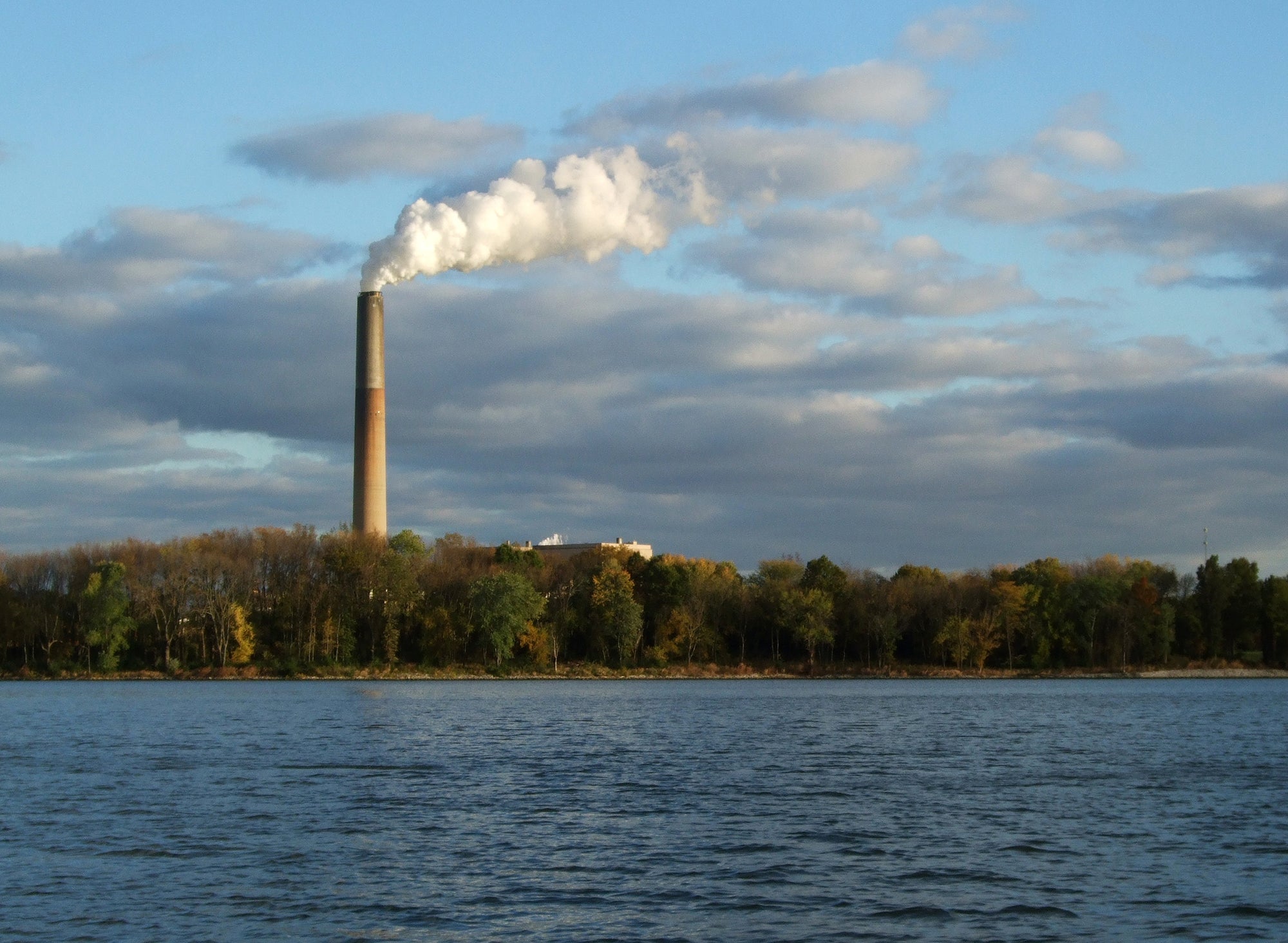Indiana Urged to Crack Down on Merom Coal Plant’s Illegal Air and Water Pollution
Plans to retire plant were scrapped and an energy-intensive cryptominer moved in
Contact
Public interest groups have documented a pattern of pollution for years at the Merom coal plant in Sullivan County and urged the Indiana Department of Environmental Management in a letter to crack down on the violations now that the plant was no longer retiring as planned. The plant has repeatedly violated legal limits on dangerous pollutants, including ammonia, lead, barium, and chromium.
The letter is from Earthjustice, Citizens Action Coalition of Indiana, Sierra Club, and Hoosier Environmental Council.
The need to address the pollution is more urgent due to the fact that plans to shut down the dirty 41-year-old plant this year were cancelled. Within a few months of the former owner revealing the plant would stay open, an out-of-state cryptomining company announced plans to build a large facility right next to the plant that would require a tremendous amount of power. The co-founder of the crypto company called the critics’ assertions that the deal could keep a polluting coal plant open ‘100% correct.’ The crypto mine’s energy demand could make it the largest electricity user in the Hoosier Energy service area.
Cryptomining involves thousands of computers competing to solve a complex math problem. The industry is surging across the U.S. since China banned it and has a track record of keeping otherwise uneconomical coal and gas plants open that are heavy polluters. It also can create significant noise pollution, raise energy prices for families, and require additional electrical infrastructure to serve its needs. See Cryptocurrency Mining in Indiana
fact sheet.
The letter sent to Indiana environmental regulators today describes the environmental and health risks. For example, the letter states: “Based on its own admission, the plant has repeatedly dumped wastewater into the Turtle Creek Reservoir — which connects to the Wabash River a couple miles away — with illegal levels of ammonia and iron, which can harm aquatic life, not to mention harm drinking water infrastructure. The plant’s testing found groundwater on the property exceeded health limits for lead, barium, chromium, cadmium, lead, sulfate, and fluoride. On top of that, the plant violated air pollution rules by producing an unacceptably high level of dense smoke (opacity), threatening the health of nearby residents who breathe that air.” (The pollution can cause harm to drinking water infrastructure by causing pipe corrosion and clogging of treatment systems.)
Sameer Doshi, an attorney with Earthjustice said, “A cryptomining company appears to be helping keep the dirty coal plant open and the plant is generating more harmful pollution every day. The cryptominers moved into Indiana and had the nerve to ask for tax subsidies. If anyone deserves a break, it’s hardworking people in Indiana.”
In 2019, only 4% of cryptomining in the world occurred in the U.S. — by the end of 2021, it was nearly 38%. This is the first known large-scale cryptomining facility in Indiana.
At least two additional cryptomining projects opened in Indiana, one in Marion and the other in northern Indiana. The Marion operation moved to a location in Wyoming and The New York Times recently said Microsoft raised the potential for national security vulnerabilities from that site.
Ben Inskeep, Program Director at Citizens Action Coalition of Indiana, said, “The Merom coal plant is an environmental fiasco. Not only is it one of the largest climate polluters in Indiana, but it has repeatedly ignored our laws designed to protect the public health and environment by dumping large amounts of harmful pollution into the air and water. AboutBit’s extraordinarily large energy needs are a driving factor contributing to keeping this dirty plant open, yet there has been little transparency on the deal cut between AboutBit and the local power provider for electricity service. Hoosiers deserve answers on the extent to which they are being forced to subsidize AboutBit’s Bitcoin mining speculation through higher electricity bills.”
The Sullivan County cryptomining facility provides far fewer jobs relative to its energy demand than most other large industrial facilities and is hosting machines from cryptomining companies from other states and countries seeking to making a profit by gaming fluctuations in the price of energy and price of Bitcoin.
Indra Frank, Director of Environmental Health and Water Policy for the Hoosier Environmental Council, said, “If the Merom plant is going to continue operating, its environmental performance has to improve. Hoosiers deserve better treatment of our air and water.”
The Merom coal-burning power plant was built and operated by the Hoosier Energy Generation & Transmission electric cooperative until about one year ago when it sold the facility to Hallador Energy, the coal mine supplier. Part of that deal included Hoosier Energy agreeing to a power purchase agreement to buy back some of the capacity and energy from the plant, which is expected to expire in 2025.
Megan Anderson, Indiana Senior Field Organizer with the Sierra Club, said, “The Merom plant violates its air and water permits, and its retirement would profoundly improve air quality and public health in the region while ending its contributions to our rapidly changing climate. Above all, Hoosier Energy should refuse to renew its power purchase agreement with Hallador Energy, which could prolong the operation of this dirty coal plant that contributes to 18 premature deaths annually due to its air pollution.”

Additional Resources
About Earthjustice
Earthjustice is the premier nonprofit environmental law organization. We wield the power of law and the strength of partnership to protect people's health, to preserve magnificent places and wildlife, to advance clean energy, and to combat climate change. We are here because the earth needs a good lawyer.